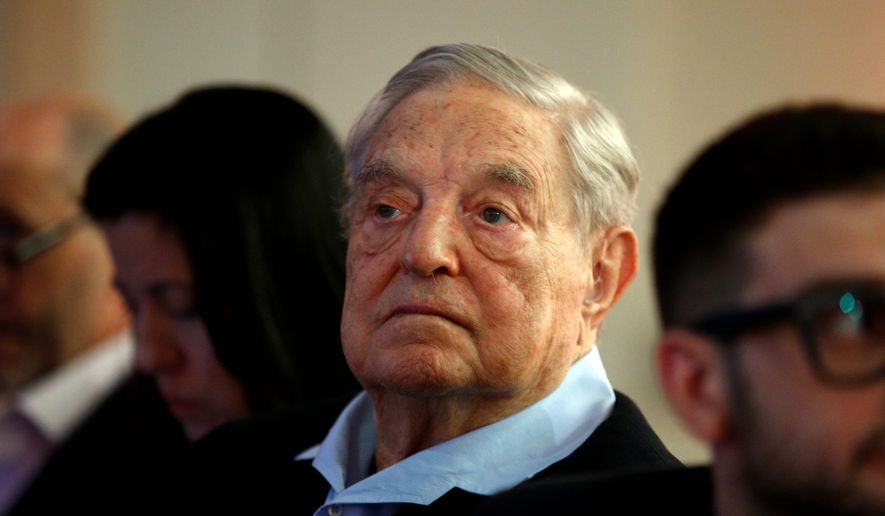With George Soros, it’s both personal and philosophical.
For many others, the fight for Hungary’s soul can be distilled down to the cage match between conservative, nationalist Prime Minister Viktor Orban and Mr. Soros, the Budapest-born 87-year-old investor who has used his hedge fund billions to underwrite liberal causes and pro-immigration civic groups and think tanks in the U.S., in his homeland and in countries across the old Soviet bloc.
Mr. Soros has become so prominent in the Hungarian domestic political debate that the crackdown on illegal immigration pushed by Mr. Orban’s Fidesz party in parliament this week is widely being described as the “Stop Soros Bill.”
Critics say the Orban government’s focus on shutting down Mr. Soros and his advocacy work reflects darker motives, including a demonization of immigrants and Muslims and even an attack of Mr. Soros’ Jewish roots. Mr. Soros’ image was ubiquitous in the campaign posters for Mr. Orban’s ruling party, which relied heavily on an anti-migration platform to win a massive electoral victory in April.
But Peter Szijjarto, Hungary’s minister of foreign affairs and trade, said in an interview that it is Mr. Soros who is out of step with what a clear majority of Hungarians say they want.
“With George Soros, we have an open debate, an open conflict,” Mr. Szijjarto said in an interview at the Hungarian Embassy near Dupont Circle on a Washington visit this week.
“We have two totally different positions on the future of Europe, two totally different positions on the future of nation-states and two totally different positions on how migration should be dealt with,” he said. “And George Soros and the organizations supporting and financed by him took part very actively in the election campaign with a clear and honest target: They wanted to throw out the government. They wanted us to be fired.”
Despite strong criticism from international rights and press freedom groups, Mr. Szijjarto said, any government would be justified in taking action against “those who carry out in our country activities which are against the national security interest.”
While people will still be free to criticize the government’s immigration and security policies, actively helping or encouraging others to break Hungary’s laws will not be tolerated, the minister said.
“Encouraging people to violate our border, encouraging people to ask for asylum regardless of whether they have a legal basis [to do so], helping people to cross the border in an illegal way — these are all activities against our national security interests,” Mr. Szijjarto said. “So it is no wonder that we have made regulations which basically seek to avoid that. So, yes, you could say we have an open and serious debate with George.”
Any debate will likely be long-distance. Officials of Mr. Soros’ Open Society Foundation in Budapest announced last month that they were shifting operations to Berlin, citing political pressure and the prospect of legal sanctions and higher fees and taxes.
“The government of Hungary has denigrated and misrepresented our work and repressed civil society for the sake of political gain,” Patrick Gaspard, president of the Soros foundations in Hungary, told reporters in Budapest last month. The foundations claim the Orban government has spent more than $100 million to denigrate its work and smear its founder, “invoking anti-Semitic imagery from World War II.”
But Mr. Szijjarto said the results of April’s election were a clear rebuke to Mr. Soros’ pro-immigration agenda.
“He didn’t succeed, so they’re obviously frustrated, you know?” he said.
• David R. Sands can be reached at dsands@washingtontimes.com.




Please read our comment policy before commenting.